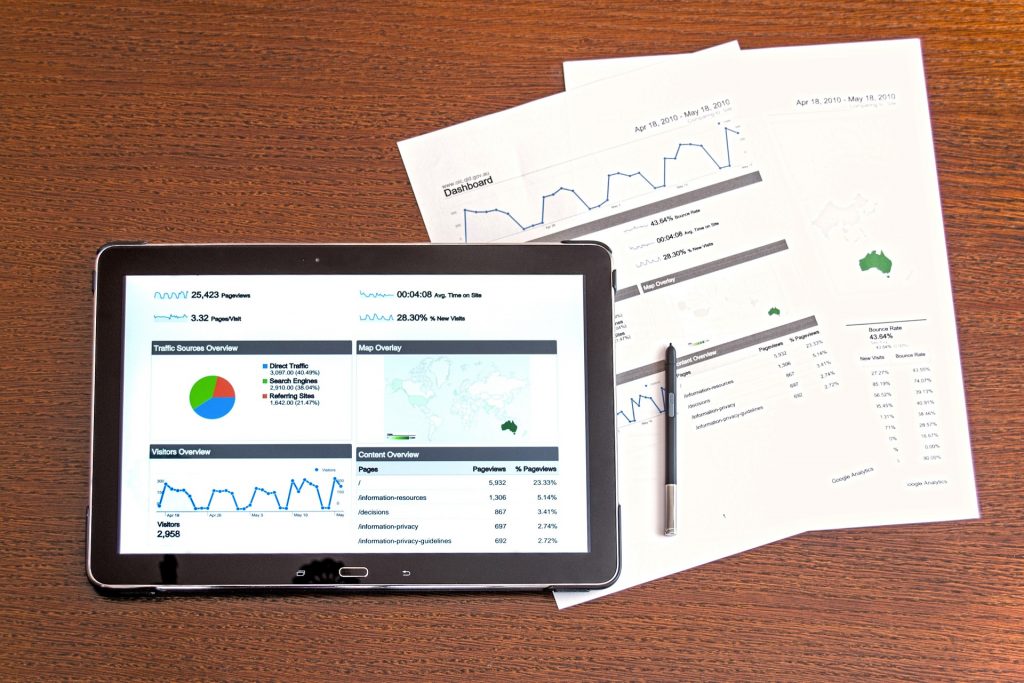Track Your PPC Performance with Expert Tools and Techniques
If you are running a PPC campaign, it is essential to track its performance to measure its success. There are various tools and techniques available to help you track your PPC campaign’s performance, from measuring your click-through rate (CTR) to analysing your conversion rates. In this article, we will discuss the expert tools and techniques you can use to track your PPC performance effectively.

1. Google Ads Dashboard
The first tool you should use to track your PPC performance is the Google Ads dashboard. This dashboard provides a wealth of information about your ad campaigns, including impressions, clicks, conversions, and more. You can use this information to optimise your ad campaigns, test new ad formats, and identify areas for improvement.
2. Set Goals for Your PPC Campaign
Before starting your PPC campaign, you need to set specific goals to measure its success. Your goals may vary depending on your business objectives, such as increasing sales or generating leads. By setting goals, you can track your campaign’s performance and make informed decisions to optimise it.
3. Use Google Ads Conversion Tracking
Google Ads Conversion Tracking is a powerful tool that allows you to track your PPC campaign’s conversions. It helps you to measure the actions users take on your website after clicking on your ads, such as making a purchase or filling out a form. By tracking conversions, you can determine which keywords and ads are performing well and optimise your campaign accordingly. For free advice on setting up the right goals, contact Breed Digital today.
4. Analyse Your Click-Through Rate (CTR)
CTR is a vital metric in PPC advertising that measures the number of clicks your ad receives divided by the number of impressions. It is an indication of how relevant your ad is to your target audience. By analysing your CTR, you can determine the effectiveness of your ads and make improvements to increase clicks and conversions.
5. Monitor Your Quality Score
Quality Score is a metric that Google and Bing uses to determine the relevance of your ads to the user’s search query. It is based on several factors, including CTR, ad relevance, and landing page experience. By monitoring your Quality Score, you can identify areas for improvement and optimise your ads for better performance.
6. Use Google Analytics
Google Analytics 4 is a powerful tool that provides valuable insights into your website’s performance, including your PPC campaigns. It allows you to track your website’s traffic, user behaviour, and conversion rates. By integrating Google Analytics with your Google Ads account, you can get a complete picture of your PPC campaign’s performance and make data-driven decisions.
7. A/B Test Your Ads
A/B testing is a technique that involves creating two versions of your ad and testing them against each other to see which performs better. By testing different ad copy, headlines, and images, you can identify the most effective elements of your ads and optimise them for better performance.
8. Use Ad Scheduling
Ad scheduling allows you to show your ads only during specific times of the day or days of the week. By scheduling your ads to run when your target audience is most active, you can improve your campaign’s performance and reduce your advertising costs.
9. Analyse Your Competitors
Analysing your competitors’ PPC campaigns can provide valuable insights into their strategies and help you to optimise your own campaign. You can use tools like SEMrush and SpyFu to analyse your competitors’ ads, keywords, and landing pages.
10. Use Call Tracking
Call tracking allows you to track the calls generated by your PPC campaign. It provides valuable insights into your campaign’s performance and helps you to measure the return on investment (ROI) of your advertising spend.
11. Use Retargeting
Retargeting is a technique that involves showing ads to users who have previously interacted with your website or ads. By retargeting users who have shown interest in your product or service, you can increase conversions and improve your campaign’s ROI.
How to Choose the Right PPC Tracking Tool
Now that you have a basic understanding of what to look for in a PPC tracking tool, it’s time to choose the right one for your business. Here are some tips to help you make an informed decision:
-
Consider your budget: PPC tracking tools come at different price points, and you want to choose one that fits your budget. Make sure you factor in all the costs, including monthly subscriptions, setup fees, and any additional costs for extra features. Often companies will hire a PPC advertising agency who are already subscribed to these best reporting tools, which is another benefit of choosing a PPC agency.
-
Look for ease of use: You don’t want to spend hours learning how to use a tool. Look for a tool that is intuitive and easy to use, with a user-friendly interface.
-
Check for integration with other tools: Your PPC tracking tool should be able to integrate with other tools you use, such as Google Analytics or your CRM system. This will help you get a more comprehensive view of your marketing performance.
-
Look for customisation options: Every business has unique needs, so look for a tool that allows you to customise reports and dashboards to suit your specific requirements.
-
Consider customer support: If you encounter any issues or have questions, you want to make sure you can get help quickly. Look for a tool that offers responsive customer support, whether it’s through email, chat, or phone.
Frequently Asked Questions (FAQs)
Q: How do I track conversions in Google Ads?
A: To track conversions in Google Ads, you need to set up conversion tracking in your account. This involves adding a conversion tracking tag to your website, which will track when users complete a specific action, such as filling out a form or making a purchase.
Q: What is the average cost-per-click for PPC advertising?
A: The average cost-per-click for PPC advertising varies widely depending on your industry, target audience, and competition. However, on average, businesses can expect to pay between £1 and £2 per click for their PPC ads.
Can I track the performance of my campaigns on social media?
Yes, many social media platforms, such as Facebook and LinkedIn, offer ad tracking and analytics tools that allow you to track the performance of your campaigns on their platforms.
Q: How often should I check my PPC performance?
A: You should check your PPC performance regularly, at least once a week, to ensure that your campaigns are on track and generating the desired results. However, you may need to check more frequently if you are making significant changes to your ad campaigns.
Q: How can I improve the quality score of my PPC ads?
To improve the quality score of your PPC ads, you should focus on creating high-quality, relevant ads that target specific keywords and demographics. You should also ensure that your landing pages are optimised for conversion and provide a good user experience for visitors.
Conclusion
Tracking your PPC performance is critical to the success of your digital marketing campaigns. With the right tools and techniques, you can get insights into your campaign performance, identify areas for improvement, and optimise your campaigns for better results. When choosing a PPC tracking tool, consider your budget, ease of use, integration with other tools, customisation options, and customer support. And don’t forget to track your campaigns regularly and adjust your strategies based on the insights you gain. With the right approach, you can achieve better ROI and grow your business through PPC advertising.
If you are overwhelmed by the choice of PPC tracking tools to consider, it’s time you spoke with a PPC Freelancer to support you.









